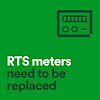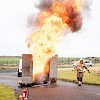
What is Fuel Poverty?
Our Affordable Warmth Service aims to alleviate fuel poverty by providing help to vulnerable households throughout the whole of Argyll & Bute and Lochaber in the Highlands. Activities include free home visits and provision of advice, support and mentoring to low income households including young people, families, older people and single parents.
ALIenergy has a large team of diversely-located advisors who offer informal chats, presentations, and free training workshops to health and social care workers, carers, community groups and individuals/households. Our workshops are flexible and adapted to suit requirements, e.g. limited time availability. Our service also trains, supports and mentors “Energy Champion” volunteers who identify and refer clients to specialist affordable warmth advisors. The Affordable Warmth advisors are trained to tailor the advice and practical measures to meet individual client’s needs thereby providing a bespoke service, often in the client’s own home or environment.
The Scottish Government’s agreed definition of Fuel Poverty is:
"A household is in fuel poverty if the household’s fuel costs (necessary to meet the requisite temperature and amount of hours as well as other reasonable fuel needs) are more than 10% of the household’s adjusted net income and after deducting these fuel costs, benefits received for a care need or disability, childcare costs, the household’s remaining income is not enough to maintain an acceptable standard of living." Fuel Poverty (Targets, Definition and Strategy) (Scotland) Act 2019
There are four main factors which influence whether a household is in fuel poverty;
1. Fuel costs: Higher prices reduce the affordability of fuel. Prices of different types of fuels can vary considerably, as can the availability of different fuels in different areas. Fuel poverty is increasing nationally due to increased costs of fuel.
What this means in the West of Scotland? No gas availability across the majority of the area – oil and electricity are the main sources of heating across much of the area, and these are subject to price fluctuations and potentially high costs. Households with electric heating are unable to access discounted dual fuel tariffs. Many of the West of Scotland population do not have access to the internet and therefore are unable to receive discounts for online billing from their energy supplier.
2. Insufficient income: The cost of heating a property forms a large proportion of the household’s income.
What this means in the West of Scotland? Wages are lower in the West of Scotland than the national average. Many workers are on a seasonal or zero hours contract. A higher than average proportion of the population are economically inactive. Some 30.4% of households in Argyll are aged 65 and over and this is expected to increase further in the future, exacerbating the relatively low level of economic activity in the area.
3. Energy efficiency: The thermal quality of the building and the efficiency of the heating system determine the amount of energy that must be purchased to heat the home adequately.
What this means in West of Scotland? higher than average number of properties (88.5%) are non-compliant with the Scottish Housing Quality Standard (SHQS) – so there is a high proportion of hard-to-heat, hard-to-treat housing (pre-1919, stone built, one and a half storey properties), other properties with low levels of insulation and even in some cases single glazing. This combined with harsh weather conditions reduces the energy efficiency ratings of properties.
4. Energy behaviour: People’s behaviour in the home can have a huge impact on fuel poverty. How someone uses their heating, lighting and appliances can cause significant fluctuations in their energy bills.
What this means in West of Scotland? With the area prone to extreme weather, many householders suffer from cold and damp housing. For heating to be efficient, it needs ventilation. This is hard to comprehend when homes are leaking draughts and letting the cold air in. The hot air also needs to escape to prevent condensation.
Fuel poverty is a dynamic condition – people can fall in and out of fuel poverty as their circumstances change. People can fall into fuel poverty if:
- The price of gas, electricity or oil increases. Fuel bills have increased and are expected to continue to increase.
- Individuals reduce their income – for example through retiring; having a career break to look after young children; having their hours reduced due to changing economic conditions, or if they lose their job.
- A home may become less energy efficient if the building fabric or heating system has fallen into a state of disrepair.
Contact us on 01631 565183 or enquiries@alienergy.org.uk to request a call from an Affordable Warmth Advisor or to enquire about a workshop or talk.



